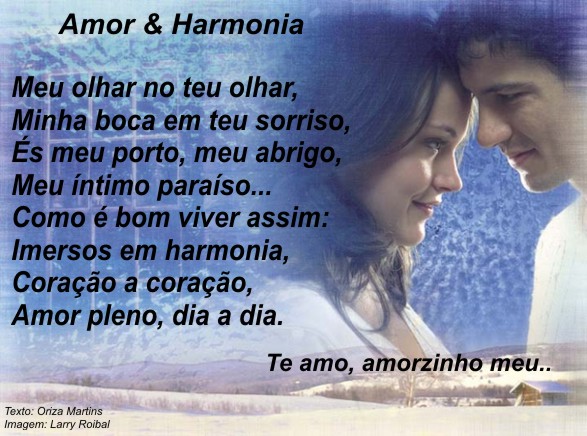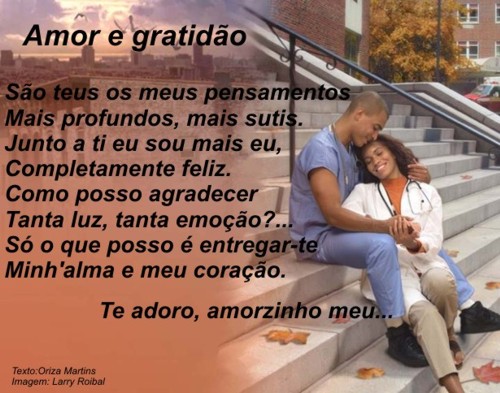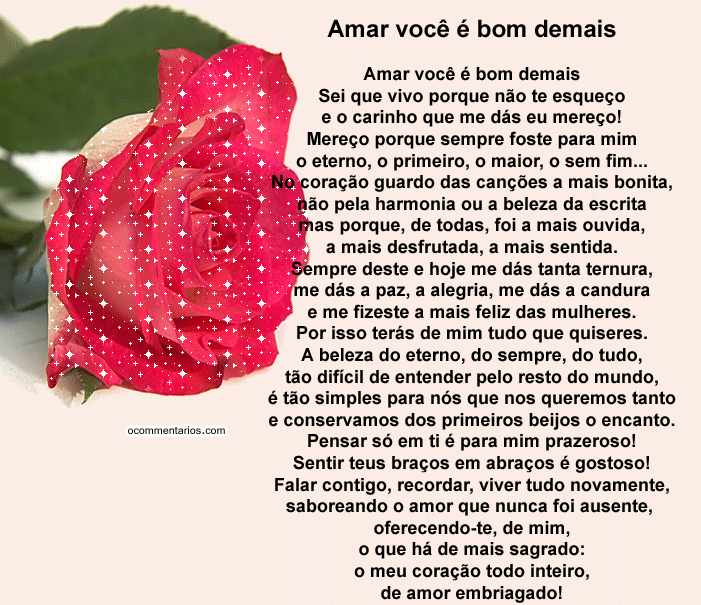mensagens de amor
Most of his songs are written in partnership with his friends Manuel Morais and singer and songwriter Erasmo Carlos. Roberto Carlos has sold over 120 million albums around the world. He is considered one of the most influential artists in Brazil during the 1960s, being cited as a source of inspiration by many artists and bands up to the 1980s.
Born on the southern part of the State of Espírito Santo, in the city of Cachoeiro de Itapemirim, he is the fourth and last son of a watchmaker, Robertino Braga (March 27, 1896 - January 27, 1980), and the seamstress Laura Moreira Braga (Mimoso South 10 April 1914 - Rio de Janeiro, April 17, 2010). The family lived in the neighborhood of Nook, a modest house, on top of a hill. Other family members were: Lauro Roberto Braga, Carlos Alberto Moreira Braga and Norma, who affectionately was called Norminha Roberto Carlos. At age 6, on the feast of St. Peter, who is the patron of the city of Cachoeiro de Itapemirim, he was hit by a steam locomotive and his right leg had to be amputated to just below the knee. He still uses a prosthesis, but avoids talking about it. As a child he learned to play guitar and piano - first with his mother and later at the Conservatory of Music Itapemirim. The idol at the time was Bob Nelson, an artist who dressed as a cowboy and sang music "country" in Portuguese. Encouraged by his mother, first sang in a children's program on Radio Cachoeiro, for nine years. He introduced himself singing the bolero "Amor y bad love." The prize for first place, received candies. The singer recalled years later date, reported on the work "Roberto Carlos in Detail", by Paulo Cesar de Araujo: "I was very nervous but very happy to sing on the radio. I got a handful of candies, which was rewarded as the program children who presented themselves there. It was a beautiful day. " It then became a constant presence of the program, every Sunday believing in your dreams of singing.
Roberto Carlos insisted on investing the time in young music, rock, and in 1962 released "Splish Splash". With his friend Erasmus, Roberto composed versions of the hits album and his own songs as "Splish Splash" and "I stopped in the opposite direction," which became big hits. The following year the singer was back on the charts with the album is No Smoking, in which, besides the title track, the highlight was the song "jalopy". Thus was born the Young Guard. Nationally known, Roberto Carlos began to present the program Young Guard in 1965, TV Record, along with Carlos and Erasmo Wanderléa. The program further popularized the movement and established the singer, who became one of the first idols of the young Brazilian culture. Also in 1965, were released the albums "Roberto Carlos Sing For The Youth" - with hits "Story of a Bad Man," "The Seven Hairy", "I'm a Fan of Monoquíni" and "Do not Want To See You Sad," partnerships with Erasmo Carlos - and "Young Guard" with the hits "What I Go All to Hell", "Big Bad Wolf," "The Ugly" (Getúlio Cortes) and "Is not Chat To Me." In 1966, Roberto Carlos presented the program "Roberto Carlos Night", "Opus 7", "Young Guard High Voltage" and "All the Young World," all of life's ephemeral and TV Record. But what else would mark one year would be a fight for professional reasons, that nearly ended the partnership between Roberto and Erasmo Carlos. The reason for the split was a failure of production of the "Show in Si Monal ..." TV Record, which paid homage to Erasmus. The production of the program had prepared a pot-pourri with Erasmus's most famous compositions, including "I stopped in the opposite direction" and "What I Go All to Hell". The controversy was created because of these songs were composed in partnership with Roberto Carlos, but the credits were given only to Erasmus. The two quarreled, and the partnership was suspended for more than one year. During this period, Roberto wrote "We There Yet?" And "My girlfriend of a Friend" were released on the LP "Roberto Carlos" that year (the album still had the hits "I'll give you Heaven," "Forget" (version Roberto Royal Court), "Black Cat" (Getúlio Cortes) and "Our Song" (Luiz Airão) . In 1967, the friendship-Roberto Erasmo followed shaken, though the present two - along with Wanderlea - the "Young Guard" on TV Record. Roberto Carlos wrote on his own hits like "How's My Love For You," "On This speeding," "When" and "What does it all", which would be released on the LP "Roberto Carlos Pace Adventure" soundtrack of the movie namesake, released the following year, which was produced and directed by Roberto Farias and Jose Lewgoy and cast with Reginaldo Farias. The film became a box office success of the national cinema. The relationship between Roberto and Erasmo Carlos back to normal because of "Adventure In Rhythm." Involved with many professional commitments, Roberto could not finish the lyrics of "I'm terrible," which would be the starting track from the soundtrack of the feature. Then he called for help to the old partner Erasmo Carlos, who helped finalize the letter. Thus, friendship and partnership of the two resumed. Later that year, Roberto Carlos did in Cannes (France) the first exhibitions abroad and participated in some festivals of Brazilian Popular Music. With "Mary, Carnival and Ash" (Luís Carlos Paraná), the singer was in fifth place. Some people hostile to the presence of an icon of the Young Guard - considered "alienated" from the perspective of time. In 1968 was released the LP "The Inimitable." Disc transition in the singer's career, the album had influences in black music (Soul / Funk) U.S. and scored several hits, like "If You Think", "Eu Te Amo, Te Amo, Te Amo," "Mine, and My, It's Mine, "" The Songs You Did To Me "(all partnerships with Erasmo Carlos)," Jealous of You "(Luiz Ayrão) and" And So I Will not Leave You Alone "(Marcos Antonio). Later that year, Roberto Carlos became the first and only Brazilian to win the Festival of San Remo (Italy), with the song "Canzone Per Te", Sergio and Sergio Endrigo Bardott. The change of style would definitely singer in 1969. The album "Roberto Carlos" was marked by a greater romanticism instead of the traditional themes typical of the Young Guard youth. Among the successes of this LP are "Road Curves of Saints," "Stupidity" and "The Flowers of the Garden of Our House", all partnerships with Erasmo Carlos. Later that year, launched the "Roberto Carlos and Diamond Pink-Rosa," the second film directed by Roberto Farias and new success at the box office.
Carlos continued to record through the 1990s, focusing on romantic songs. In the mid 1990s a retro-Jovem Guarda wave hit Brazil, and Carlos—who was considered a has-been amongst a younger generation familiar only with his romantic and sentimental hits directed at a middleaged audience—had his importance cited by younger musicians such as Cássia Eller, Adriana Calcanhotto, Chico Science e Nação Zumbi, Barão Vermelho and Skank. Skank also recorded Rei, a tribute to Roberto Carlos with his classic hits from the heyday of the Jovem Guarda epoch.

Amor

Amor

foto mensagens de otimismo

[ envie esta mensagem ]

Mensagens

amor-recados-para-orkut47.

Amor e Gratidão

Recados com Mensagens de amor

Galeria de Depoimentos para

amor_013.gif

Mensagens

Mensagens de Amor para Orkut,

amor mensagem\x26quot;

Mensagens de Amor para orkut

para amor, amor mensagem\x26quot;

hair mensagens de amor
Born on the southern part of the State of Espírito Santo, in the city of Cachoeiro de Itapemirim, he is the fourth and last son of a watchmaker, Robertino Braga (March 27, 1896 - January 27, 1980), and the seamstress Laura Moreira Braga (Mimoso South 10 April 1914 - Rio de Janeiro, April 17, 2010). The family lived in the neighborhood of Nook, a modest house, on top of a hill. Other family members were: Lauro Roberto Braga, Carlos Alberto Moreira Braga and Norma, who affectionately was called Norminha Roberto Carlos. At age 6, on the feast of St. Peter, who is the patron of the city of Cachoeiro de Itapemirim, he was hit by a steam locomotive and his right leg had to be amputated to just below the knee. He still uses a prosthesis, but avoids talking about it. As a child he learned to play guitar and piano - first with his mother and later at the Conservatory of Music Itapemirim. The idol at the time was Bob Nelson, an artist who dressed as a cowboy and sang music "country" in Portuguese. Encouraged by his mother, first sang in a children's program on Radio Cachoeiro, for nine years. He introduced himself singing the bolero "Amor y bad love." The prize for first place, received candies. The singer recalled years later date, reported on the work "Roberto Carlos in Detail", by Paulo Cesar de Araujo: "I was very nervous but very happy to sing on the radio. I got a handful of candies, which was rewarded as the program children who presented themselves there. It was a beautiful day. " It then became a constant presence of the program, every Sunday believing in your dreams of singing.
Roberto Carlos insisted on investing the time in young music, rock, and in 1962 released "Splish Splash". With his friend Erasmus, Roberto composed versions of the hits album and his own songs as "Splish Splash" and "I stopped in the opposite direction," which became big hits. The following year the singer was back on the charts with the album is No Smoking, in which, besides the title track, the highlight was the song "jalopy". Thus was born the Young Guard. Nationally known, Roberto Carlos began to present the program Young Guard in 1965, TV Record, along with Carlos and Erasmo Wanderléa. The program further popularized the movement and established the singer, who became one of the first idols of the young Brazilian culture. Also in 1965, were released the albums "Roberto Carlos Sing For The Youth" - with hits "Story of a Bad Man," "The Seven Hairy", "I'm a Fan of Monoquíni" and "Do not Want To See You Sad," partnerships with Erasmo Carlos - and "Young Guard" with the hits "What I Go All to Hell", "Big Bad Wolf," "The Ugly" (Getúlio Cortes) and "Is not Chat To Me." In 1966, Roberto Carlos presented the program "Roberto Carlos Night", "Opus 7", "Young Guard High Voltage" and "All the Young World," all of life's ephemeral and TV Record. But what else would mark one year would be a fight for professional reasons, that nearly ended the partnership between Roberto and Erasmo Carlos. The reason for the split was a failure of production of the "Show in Si Monal ..." TV Record, which paid homage to Erasmus. The production of the program had prepared a pot-pourri with Erasmus's most famous compositions, including "I stopped in the opposite direction" and "What I Go All to Hell". The controversy was created because of these songs were composed in partnership with Roberto Carlos, but the credits were given only to Erasmus. The two quarreled, and the partnership was suspended for more than one year. During this period, Roberto wrote "We There Yet?" And "My girlfriend of a Friend" were released on the LP "Roberto Carlos" that year (the album still had the hits "I'll give you Heaven," "Forget" (version Roberto Royal Court), "Black Cat" (Getúlio Cortes) and "Our Song" (Luiz Airão) . In 1967, the friendship-Roberto Erasmo followed shaken, though the present two - along with Wanderlea - the "Young Guard" on TV Record. Roberto Carlos wrote on his own hits like "How's My Love For You," "On This speeding," "When" and "What does it all", which would be released on the LP "Roberto Carlos Pace Adventure" soundtrack of the movie namesake, released the following year, which was produced and directed by Roberto Farias and Jose Lewgoy and cast with Reginaldo Farias. The film became a box office success of the national cinema. The relationship between Roberto and Erasmo Carlos back to normal because of "Adventure In Rhythm." Involved with many professional commitments, Roberto could not finish the lyrics of "I'm terrible," which would be the starting track from the soundtrack of the feature. Then he called for help to the old partner Erasmo Carlos, who helped finalize the letter. Thus, friendship and partnership of the two resumed. Later that year, Roberto Carlos did in Cannes (France) the first exhibitions abroad and participated in some festivals of Brazilian Popular Music. With "Mary, Carnival and Ash" (Luís Carlos Paraná), the singer was in fifth place. Some people hostile to the presence of an icon of the Young Guard - considered "alienated" from the perspective of time. In 1968 was released the LP "The Inimitable." Disc transition in the singer's career, the album had influences in black music (Soul / Funk) U.S. and scored several hits, like "If You Think", "Eu Te Amo, Te Amo, Te Amo," "Mine, and My, It's Mine, "" The Songs You Did To Me "(all partnerships with Erasmo Carlos)," Jealous of You "(Luiz Ayrão) and" And So I Will not Leave You Alone "(Marcos Antonio). Later that year, Roberto Carlos became the first and only Brazilian to win the Festival of San Remo (Italy), with the song "Canzone Per Te", Sergio and Sergio Endrigo Bardott. The change of style would definitely singer in 1969. The album "Roberto Carlos" was marked by a greater romanticism instead of the traditional themes typical of the Young Guard youth. Among the successes of this LP are "Road Curves of Saints," "Stupidity" and "The Flowers of the Garden of Our House", all partnerships with Erasmo Carlos. Later that year, launched the "Roberto Carlos and Diamond Pink-Rosa," the second film directed by Roberto Farias and new success at the box office.
Carlos continued to record through the 1990s, focusing on romantic songs. In the mid 1990s a retro-Jovem Guarda wave hit Brazil, and Carlos—who was considered a has-been amongst a younger generation familiar only with his romantic and sentimental hits directed at a middleaged audience—had his importance cited by younger musicians such as Cássia Eller, Adriana Calcanhotto, Chico Science e Nação Zumbi, Barão Vermelho and Skank. Skank also recorded Rei, a tribute to Roberto Carlos with his classic hits from the heyday of the Jovem Guarda epoch.

Amor

Amor

foto mensagens de otimismo

[ envie esta mensagem ]

Mensagens

amor-recados-para-orkut47.

Amor e Gratidão

Recados com Mensagens de amor

Galeria de Depoimentos para

amor_013.gif

Mensagens

Mensagens de Amor para Orkut,

amor mensagem\x26quot;

Mensagens de Amor para orkut

para amor, amor mensagem\x26quot;

hair mensagens de amor

0 Comments:
Post a Comment
Subscribe to Post Comments [Atom]
<< Home